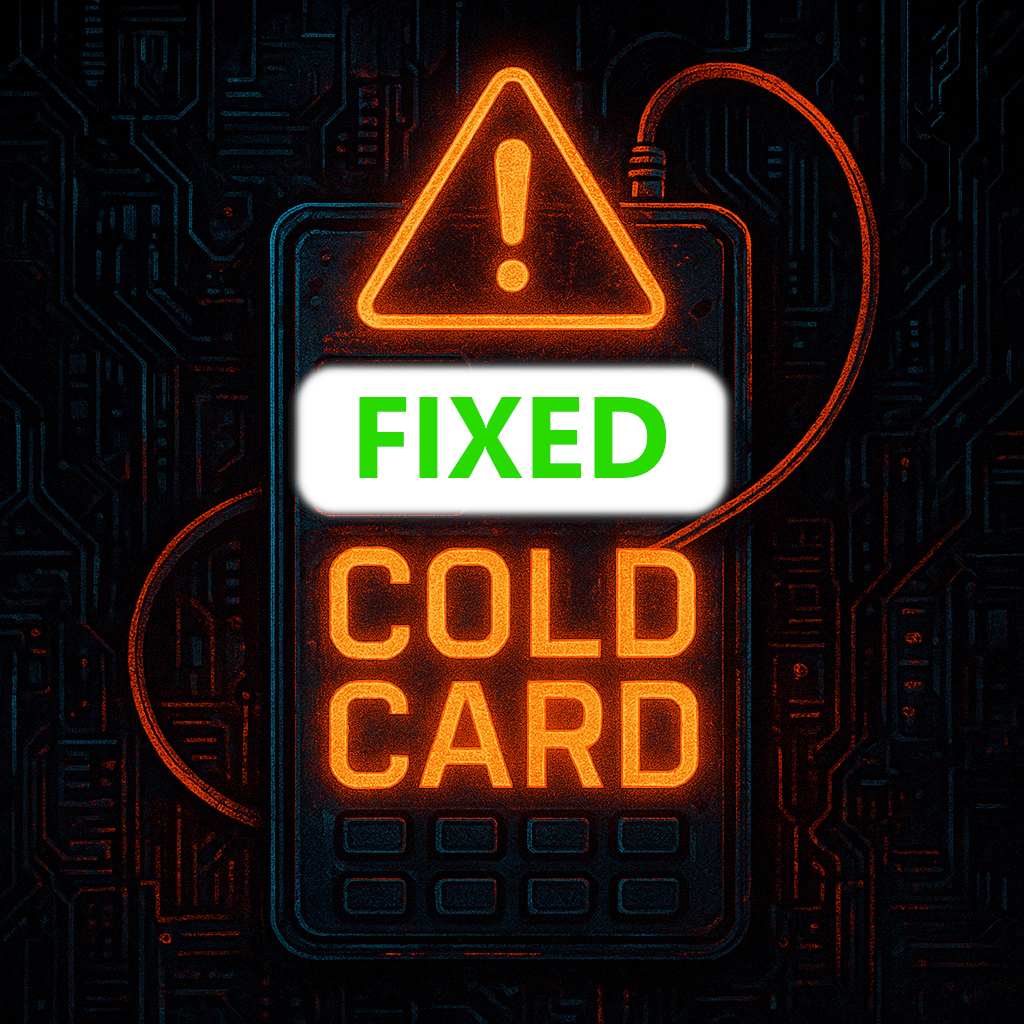Technical Disclosure: Coldcard Delta PIN Private Key Recovery Vulnerability
Date: September 30, 2025 · Author: Karma-X...

The Karma-X Security Research Team discovered a critical cryptographic vulnerability in the Coldcard hardware wallet's Delta PIN feature that allowed full private key recovery with just two transaction signatures.
Date: September 30, 2025 · Author: Karma-X...Technical Disclosure: Coldcard Delta PIN Private Key Recovery Vulnerability
This is premium content from our research team. Create a free account to access the full article and join our community of security professionals.
Already have an account? Sign in here
The Bottom Line: Karma-X discovered a critical flaw in Coldcard Bitcoin wallets that could let an attacker steal all your Bitcoin by tricking you twice. The good news? It's already fixed, but you need to update your device immediately.
A Coldcard is a physical device (like a specialized USB drive) that stores your Bitcoin private keys—think of it as a super-secure vault for your cryptocurrency. It has a special "panic mode" called Delta PIN that's supposed to protect you if someone forces you to unlock your wallet at gunpoint.
Imagine you're being robbed and the attacker demands your wallet PIN. Coldcard's Delta PIN is like a "panic code" that looks almost identical to your real PIN (just one number different). The idea:
Clever, right? Unfortunately, there was a massive problem with how this was implemented.
Create a free account to read the complete article and access our full library of research content.
From small business to enterprise, Karma-X installs simply and immediately adds peace of mind
Karma-X doesn't interfere with other software, only malware and exploits, due to its unique design.
Whether adversary nation or criminal actors, Karma-X significantly reduces exploitation risk of any organization
Update to deploy new defensive techniques to suit your organization's needs as they are offered